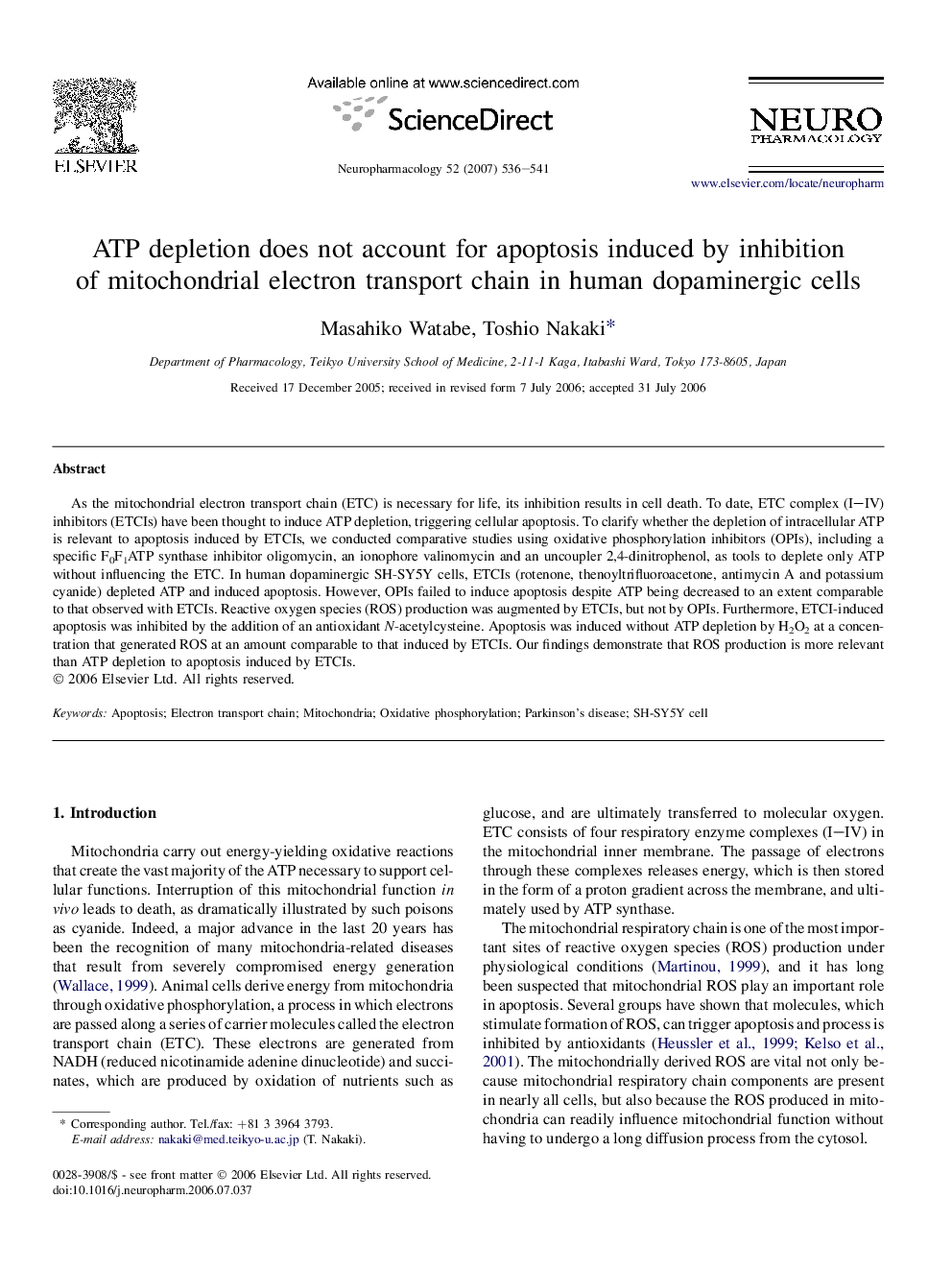| Article ID | Journal | Published Year | Pages | File Type |
|---|---|---|---|---|
| 2494821 | Neuropharmacology | 2007 | 6 Pages |
As the mitochondrial electron transport chain (ETC) is necessary for life, its inhibition results in cell death. To date, ETC complex (I–IV) inhibitors (ETCIs) have been thought to induce ATP depletion, triggering cellular apoptosis. To clarify whether the depletion of intracellular ATP is relevant to apoptosis induced by ETCIs, we conducted comparative studies using oxidative phosphorylation inhibitors (OPIs), including a specific F0F1ATP synthase inhibitor oligomycin, an ionophore valinomycin and an uncoupler 2,4-dinitrophenol, as tools to deplete only ATP without influencing the ETC. In human dopaminergic SH-SY5Y cells, ETCIs (rotenone, thenoyltrifluoroacetone, antimycin A and potassium cyanide) depleted ATP and induced apoptosis. However, OPIs failed to induce apoptosis despite ATP being decreased to an extent comparable to that observed with ETCIs. Reactive oxygen species (ROS) production was augmented by ETCIs, but not by OPIs. Furthermore, ETCI-induced apoptosis was inhibited by the addition of an antioxidant N-acetylcysteine. Apoptosis was induced without ATP depletion by H2O2 at a concentration that generated ROS at an amount comparable to that induced by ETCIs. Our findings demonstrate that ROS production is more relevant than ATP depletion to apoptosis induced by ETCIs.
